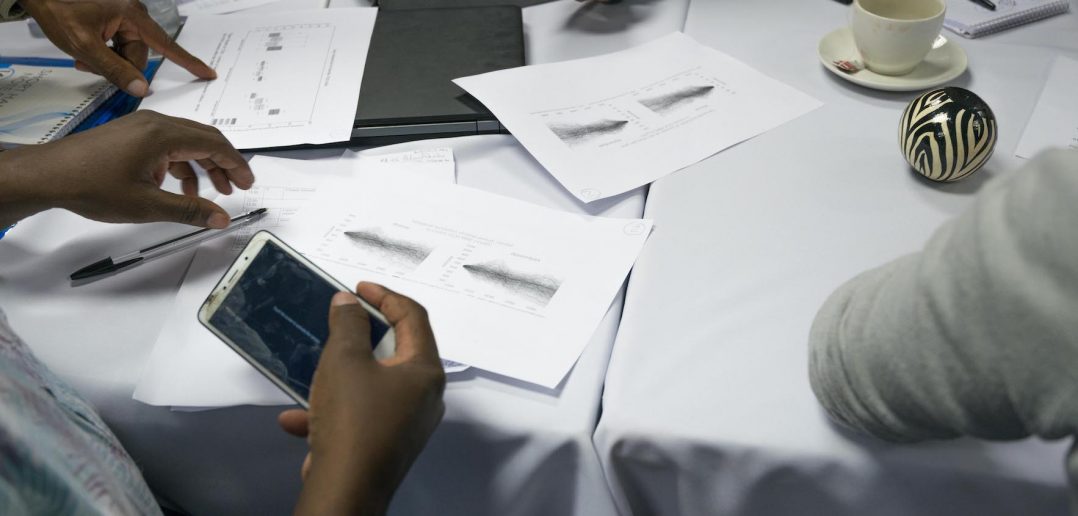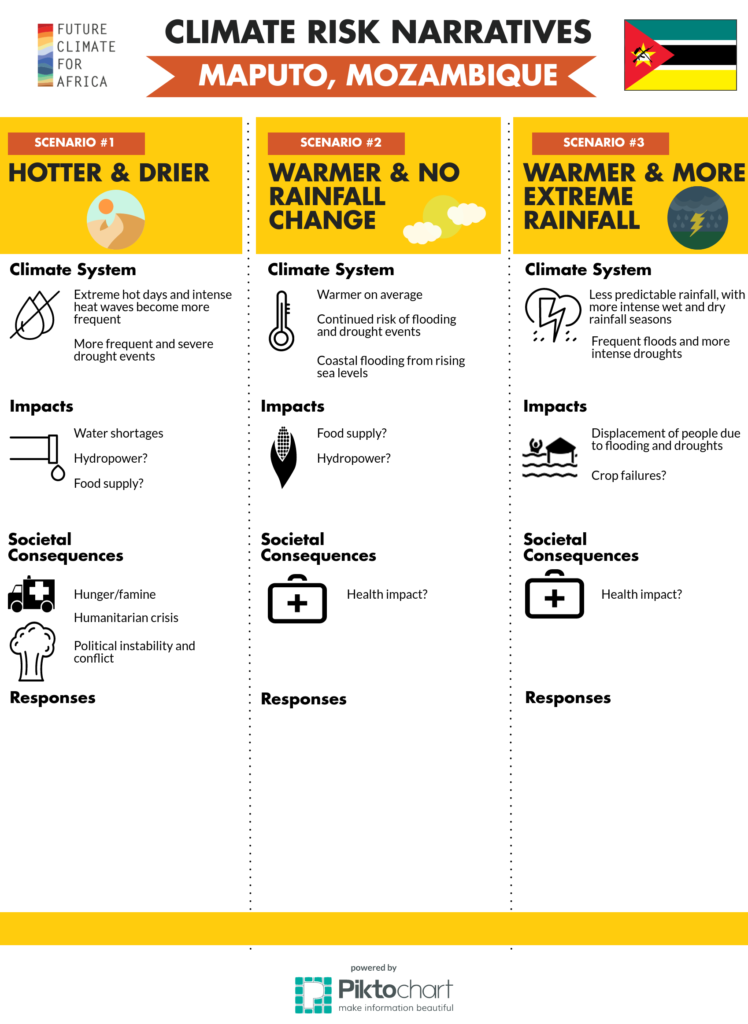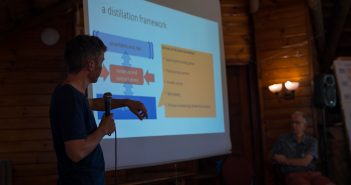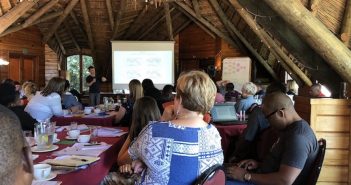A new paper on the development and role of climate risk narratives (CRNs) in FRACTAL has been published in the journal Climate Risk Management – ‘Climate risk narratives: An iterative reflective process for co-producing and integrating climate knowledge’. Its authors, Chris Jack, Richard Jones, Laura Burgin and Joseph Daron are all part of the climate science group at FRACTAL. They discuss how they represented different types of uncertainty in the CRNs, how the CRNs were developed through co-production, what value they bring to the integration and interrogation of climate knowledge, and their role as transdisciplinary engagement devices.
They admit that developing climate knowledge through iterative co-production processes has not always been easy. FRACTAL’s focus on engagements with stakeholders such as Learning Labs that are both open ended and reflexive meant that the scientists, used to providing the best interpretations of the latest, cutting edge climate data that they can, have had to spend a lot of time listening and learning.
It is a change that they have worked hard to embrace. Recognising that building urban climate resilience, which is at the core of FRACTAL’s work, is very challenging in complex decision contexts such as fast-growing, southern African cities, the climate scientists set out to develop CRNs that could be used as a climate information communication device as well as a conversation starter. Through the process the team aimed to discover what climate information was needed in each city context, to communicate the language of uncertainty in climate science as clearly as possible and consequently to provide relevant climate knowledge that both promoted dialogue and was scientifically sound.
For Windhoek, Lusaka and Maputo, the team developed multiple CRNs, usually presented as an infographic such as this one for Maputo. By clearly presenting a range of plausible futures they hoped to capture the important elements of uncertainty. They proved useful as a way to prompt discussion during FRACTAL’s numerous engagements. In the paper, Jack et al describe the CRNs as “…collaborative learning tools that facilitate engagement across disciplinary or practice boundaries and allow for diverse perspectives and interpretation of information, including lack of consensus.”
The full paper can be accessed here. A FRACTAL Impact Story and a poster were also written about the process of developing CRNs. The CRNs can be found on the city pages: Windhoek, Lusaka and Maputo.




